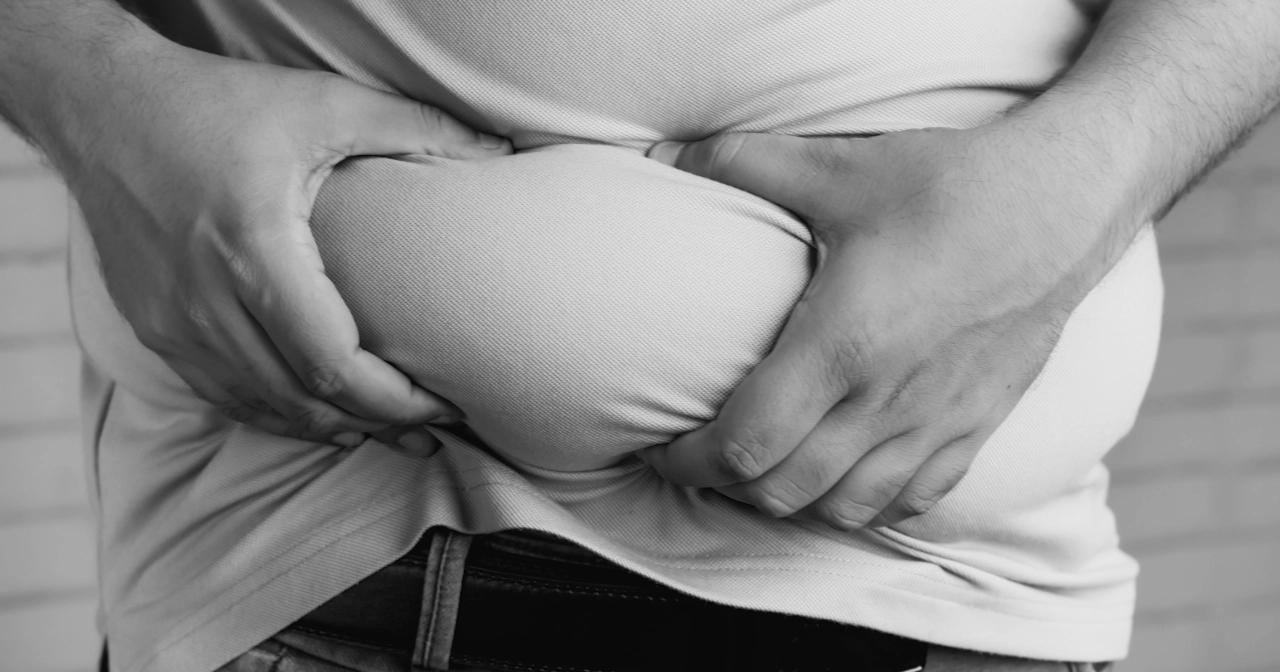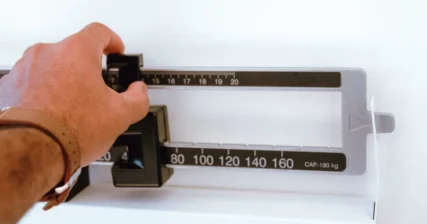Listen on: Apple Podcasts | Spotify
You probably know someone who lost weight and looked great, and then a few months later had rebounded back to where they’d been before they lost it. Maybe that’s happened to you.
Though it’s all too common for people to regain their lost weight and even to gain more body fat than they lost, it doesn’t have to be that way.
There are many reasons for the rebound, and a new study points to a new cause most people are unfamiliar with. First, I’ll cover the common and obvious causes of weight regain. Then I’ll delve into the new one discovered through a new study published by Nature. I hope it enlightens both fitness professionals and everyday Janes and Joes alike.
1. Going Back to Bad Habits
I’m not a fan of fitness goals with deadlines, like weddings or physique contests. In some instances, they’re unavoidable, but most people who set a fat loss goal for a specific event end up dropping their program right after the event.
As I explained in a previous article, you create an endpoint for your efforts when you set a specific, time-based goal. I’ve heard people in the gym talk about being two weeks into a 12-week diet, and how they were already fantasizing about the junk they’d eat when it was over.
I don’t usually recommend strict diets for this very reason. If someone has it in their head that they can return to their old ways at some future date, they will indeed do that. The diet and lifestyle choices that made them fat and unhealthy before the diet will undoubtedly do the same if they go back to them after the diet is over.
Instead, adopting some simple, nonnegotiable nutrition and lifestyle choices is better. In doing so, the weight will come off over time, and they’ll be less risk of regaining it because those simple choices become lifelong habits.
2. Lost Muscle Mass and Dysfunctional Metabolism
Weight loss and fat loss are not the same things. Many low-calorie diets, especially those that don’t include enough protein, cause significant muscle loss along with some fat loss. This problem is further compounded when you add in excessive amounts of cardio.
Muscle loss leads to a lower metabolic rate and less carbohydrate storage capacity. On top of that, thyroid levels plummet on long-term, low-calorie diets. In some people, hypothyroidism could become a permanent condition.
Is some level of calorie restriction required for fat loss? Yes, but not as much as most people think, especially if that reduced-calorie diet is high in protein.
Imagine combining the slower, dysfunctional metabolism with a return to the old diet and lifestyle habits I discussed in the previous section. This can lead people to gain more body fat than before.
3. Reduced Exercise and Activity
I’ve met gym members over the years who’d spend two hours a day doing cardio leading up to a special event. I also know of many people who take up marathons and triathlons as a means of weight loss. What happens after the event of competition is over?
They stop doing so much cardio or endurance exercise. Some stop altogether.
They stop expending so much energy but often end up eating the same as they had while exercising. And often, these foods are high in carbohydrates, which helps them quickly pack the body fat back on.
This is why I use cardio sparingly when I work with clients. If someone is obese, it can be a helpful tool to trigger weight loss (along with a good nutrition plan), but over time, I reduce cardio and increase resistance training. For those closer to a healthy weight, I might never have them do cardio, focusing only on their nutrition program and resistance training.
Read also: Can you lose weight without cardio?
4. Insufficient Post-Diet Protein Intake
Of all the dietary choices you could make after a diet, continuing to eat high-protein is the most important. Research shows that a high-protein diet will help you keep your appetite in check, fill you up so you won’t eat as much junk, help you preserve muscle mass and a higher metabolic rate, and help you keep blood sugar levels more normal.
But protein-rich foods aren’t what most people fanaticize about when they’re on a diet. Instead, they want starch, sugar, and fat.
A poll from a few years back found that over half of Americans choose breakfast cereal for breakfast, one of the worst ways to start a day for both adults and kids alike. Going back to such a breakfast after a diet is a surefire way to trigger cravings for junk, increase blood sugar, insulin, and triglycerides, telling your body to store as much fat as possible.
As the day progresses, sandwiches, pasta, rice, and potatoes only reinforce the message that started with breakfast, especially if those meals don’t include enough protein.
A high-protein diet protects people from some fat regain they’d otherwise experience.
5. Excess Lactobacillus Bacteria in Gut (New Finding)
This final potential cause of fat regain after dieting was news to me. It comes from a study published this month.
Using animals, which are much easier to control for dietary protocols, the research team found that calorie restriction significantly increased the small intestine population of Lactobacillus murinus. Lactobacillus murinus increases the intestine’s fatty acid absorption into the bloodstream and fatty acid uptake into white adipose tissue (fat cells). Furthermore, when the researchers took the animals off their diets and fed them their normal diets, L. murinus levels continued to increase.
To put it more plainly, calorie restriction increases the population of Lactobacillus murinus, which increases the absorption of fatty acids from the digestive system into the bloodstream and from the bloodstream into fat cells. Going off the diet increases the bacterial population, contributing to increased body fat when returning to a normal eating pattern after dieting.
So, you don’t want more of this probiotic in your intestines if you hope to keep body fat levels down.
To minimize the population of Lactobacillus murinus, you have a couple of options. First, you could take antibiotics, which would wipe out much of the L. murinus population while also killing off many other health-promoting bacteria. That would not be a wise option.
Second, you could eat a high-protein diet. Yes, this is another benefit to a high-protein diet. The researchers discovered that a high-protein diet, both during and after a diet, helped minimize the gut’s L. murinus population.
To be clear, we’re talking about the fattening effects of Lactobacillus murinus. Other strains can aid in fat loss, such as Lactobacillus rhamnosus, Lactobacillus reuteri, Bifidobacterium breve, or Lactobacillus gasseri.
Rather than searching for the perfect fat-reducing probiotic, I’d recommend simply eating a high-protein diet. Following a high-protein diet is the most effective dietary strategy for maintaining muscle and minimizing fat throughout your lifespan.
Read also: Health Benefits of Probiotics: Your Guide.
Photo by Towfiqu barbhuiya on Unsplash



